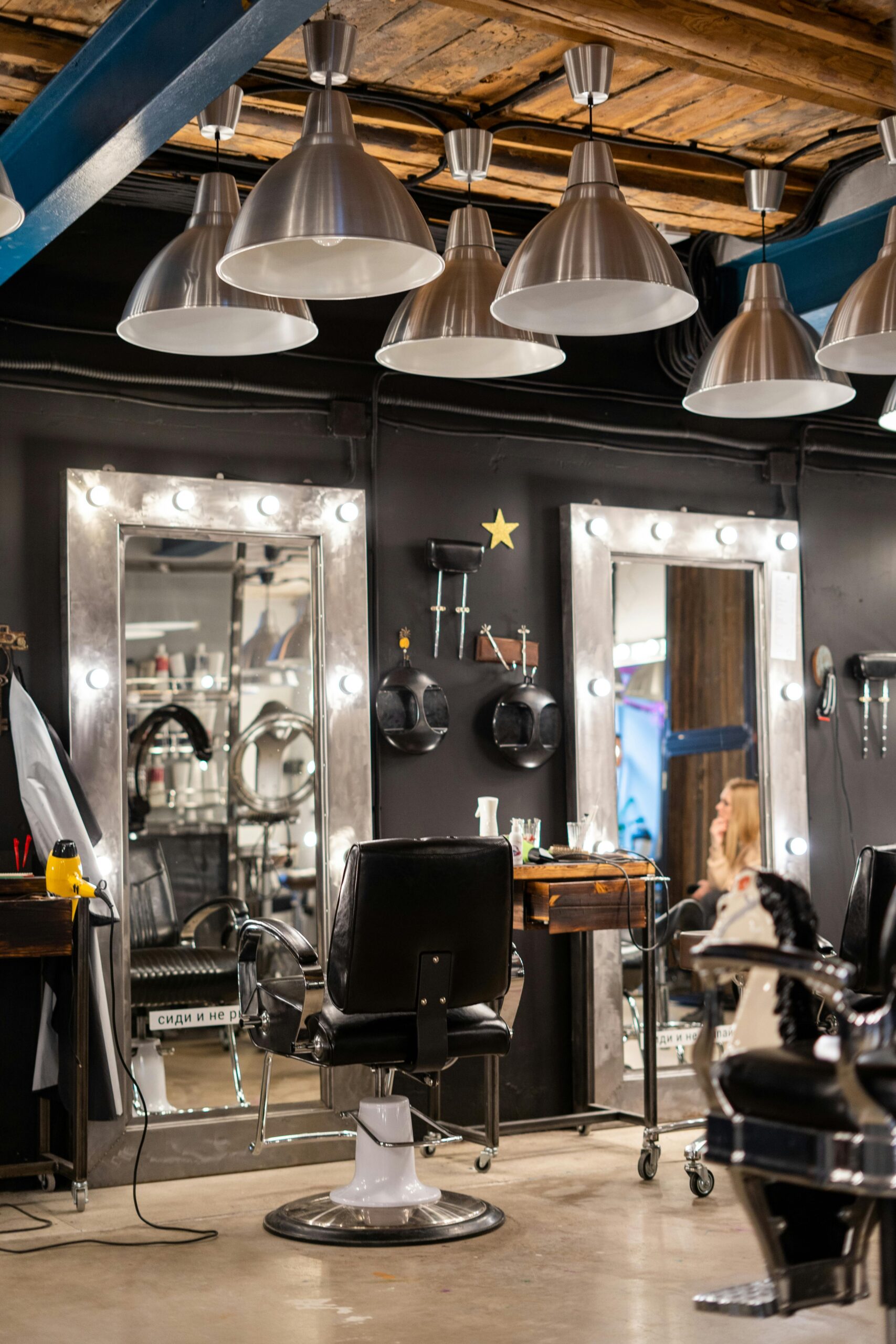Barbering vs Cosmetology? What’s the Difference?
What is the difference between Barbering vs Cosmetology?
Many ask this question, wondering how cutting hair is different than cutting hair?
It’s understandable if you’re not in the industry it can be a little confusing.
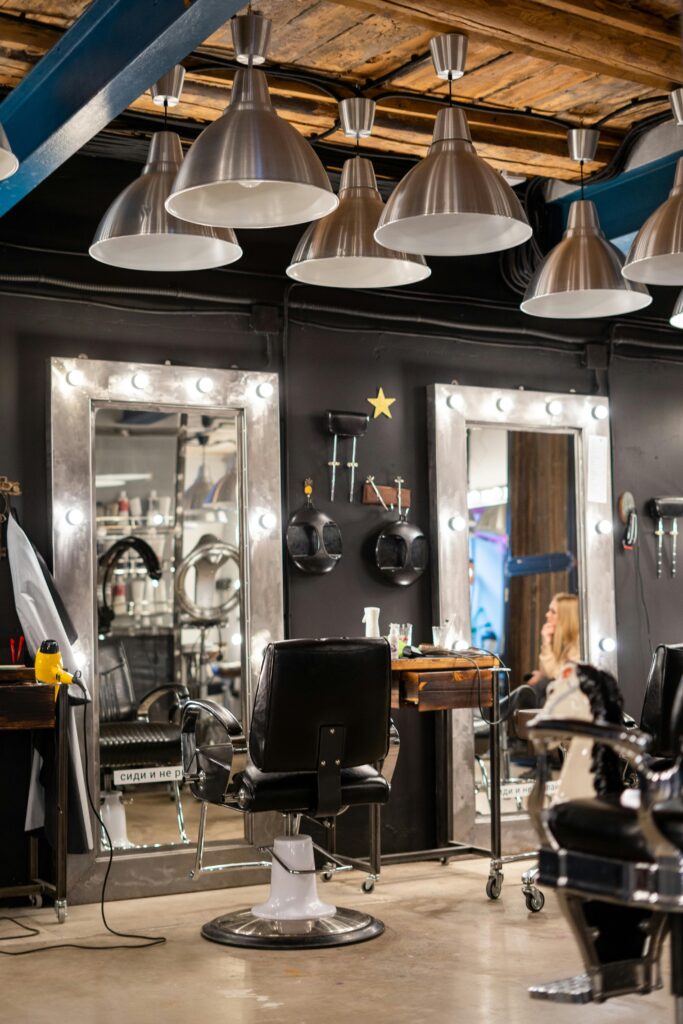
I am professionally both a Barber and Cosmetologist for the entirety of my career. And have started several haircutting businesses and absolutely love what I do.
Let’s talk about the differences between being a Barber, Cosmetologist, Hairstylist, Hairdresser, Esthetician, and Nail Tech.
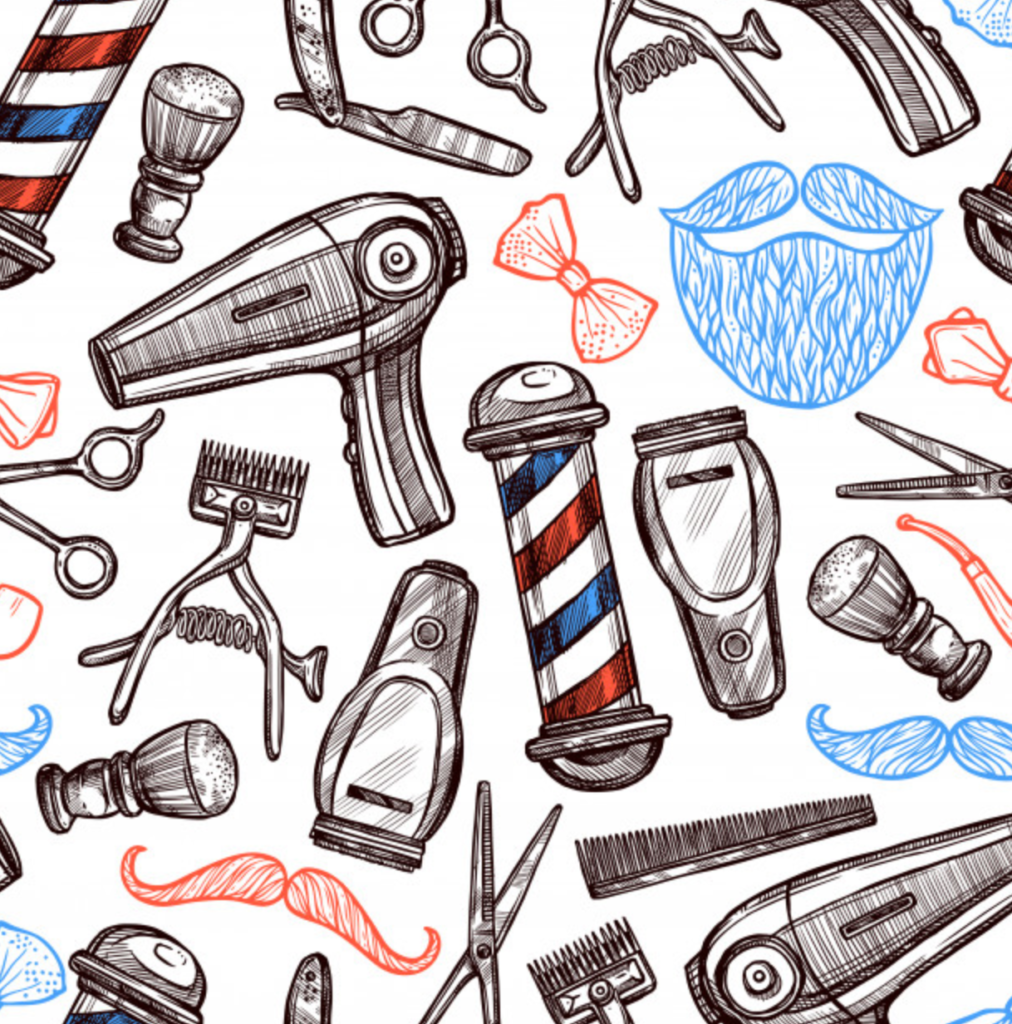
Let’s Make it Simple- Barbering vs Cosmetology
Barbers – Specialize in Men’s Haircuts and Beard Grooming
When referring to “barbering” it simply implies the practice of doing what licensed barbers do.
Cosmetologists – Specialize in Women’s and Family hair care (men and kid’s) as well as color, skin and nail services.
Hairstylist / Hairdresser – Hairstylist is another name for any of the above, HOWEVER a Hairdresser is a specific license that is limited to just hair services such as cutting, color, and styling.
Esthetician – Specialist in skin treatments, such as spa work, facials and makeup.
Nail Technician – A Nail Technician is a trained and licensed specialist in doing nails including acrylics (artificial nails), manicures and pedicures.
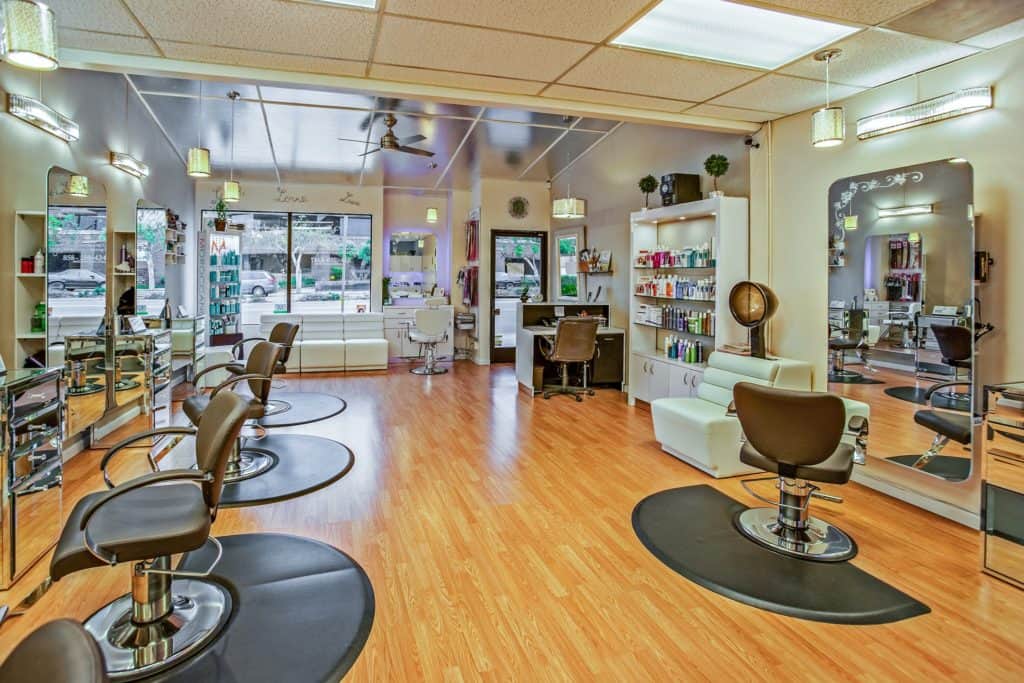
Barbering and Cosmetology
Each state in the United States has different requirements to be able to get take the exams and get licensing for both barbers and cosmetologists.
Some States require more clocked-in hours of schooling than others. But overall the knowledge requirements are the same for each of the above in each state.
There are cross-over programs that some schools offer that basically teach the same things- cutting hair for barbers and for cosmetologists-
Break it down – Barbers vs Cosmetologists
Barbers specialize in Men’s grooming. Haircuts, shaves, beard trims, and even color. It is legal to use a straight razor on the face, scalp, and neck.
Not all states allow barbers to wax, but others do.
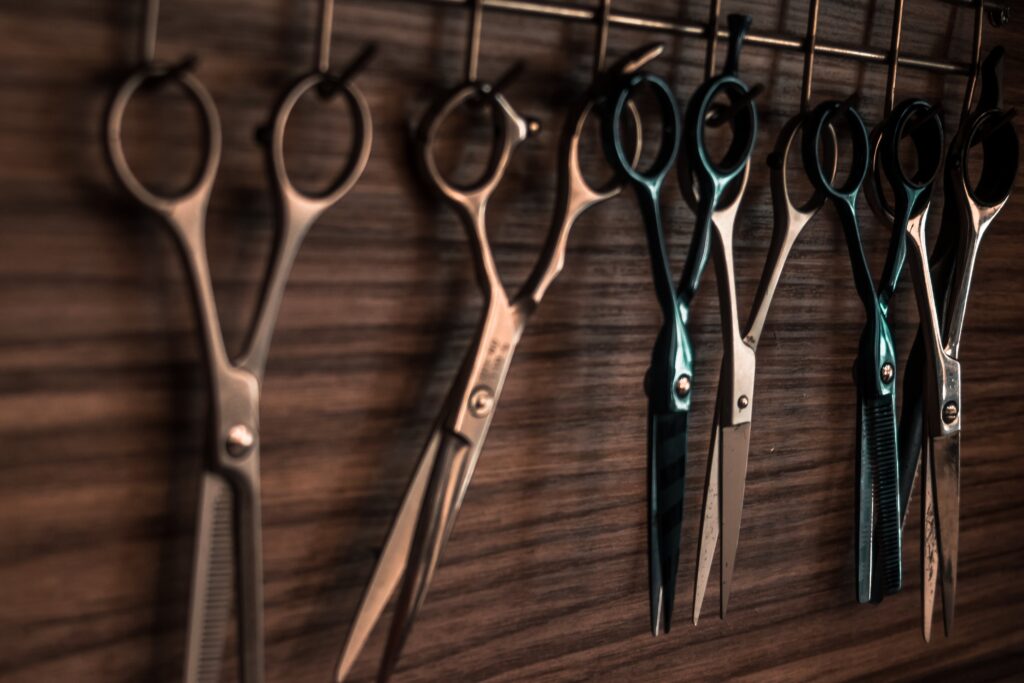
Breaking it down – Cosmetology vs Barbering
Cosmetologists specialize in overall grooming but generally family and women’s hair.
Cosmetologists are trained in hair, skin, and nails. So those with this type of license could work as an Aesthetician, or Nail Tech, or Hairstylist.
The only downside is that Cosmetologists are legally not allowed to use a straight razor from the jugular artery (side of the neck) forward, or on the forehead hairline down.
This varies from State to State, some states allow some razor use for cosmetologists, others none at all. Overall under the Cosmetology license, a person is allowed to cut, color, highlight, beard trim, wax, do nails, and skin treatments.
What’s the Difference in the Programs?
Barbering and cosmetology programs have distinct focuses and teach different skills. Understanding the program differences can help aspiring professionals choose the path that aligns with their interests and career goals.
Barbering Programs
Barbering programs primarily focus on hair cutting and grooming techniques for male clients.
Students in barbering programs learn how to use various tools such as clippers, trimmers, and scissors to create classic and modern men’s hairstyles. The curriculum typically includes courses on haircutting, shaving, beard grooming, and scalp treatments.
Additionally, barbering programs may cover topics like facial hair design, chemical services for hair and scalp, and hygiene and safety practices specific to male grooming.
Cosmetology Programs
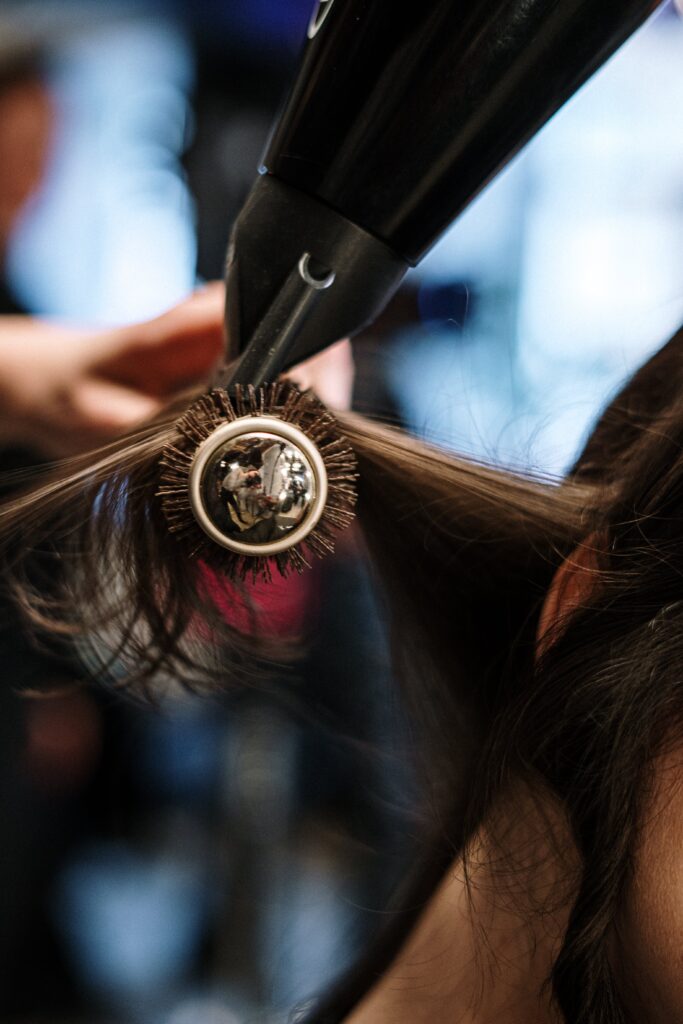
Cosmetology programs, on the other hand, cover a broader range of beauty services. Cosmetology students learn about hair, skin, and nail care techniques for both men and women.
The curriculum includes courses on hair cutting, styling, coloring, and chemical services, skincare, makeup application, nail care, and salon business management are also covered in cosmetology programs.
Students gain a comprehensive understanding of the various beauty services and techniques required to work in a salon or spa environment.
Are the Requirements Different for Barbering and Cosmetology Exams?
The requirements for obtaining a license to practice barbering or cosmetology can vary depending on the state. However, in most states, there are notable differences between the two.
Barbering License Requirements
Barbering exams typically focus more on cutting and grooming techniques specifically for male clients.
To qualify for a barbering license, candidates must usually complete a state-approved barbering program, which typically requires around 1500 hours of training.
The training includes both theoretical classroom instruction and hands-on experience performing barbering services on clients. After completing the program, candidates must pass a written and practical exam that evaluates their knowledge and skills in areas such as hair cutting, shaving, and beard grooming.
Cosmetology License Requirements
Cosmetology exams cover a broader range of beauty services and techniques. To obtain a cosmetology license, candidates must complete a state-approved cosmetology program, which usually requires around 1600-1800 hours of training.
This training includes both theoretical classroom instruction and hands-on practice in various areas such as hair cutting, styling, coloring, skincare, makeup, and nail care.
After completing the program, candidates must pass a written and practical exam that assesses their knowledge and skills across multiple beauty domains.
How Long is Cosmetology School – How Long to Become a Cosmetologist 2024
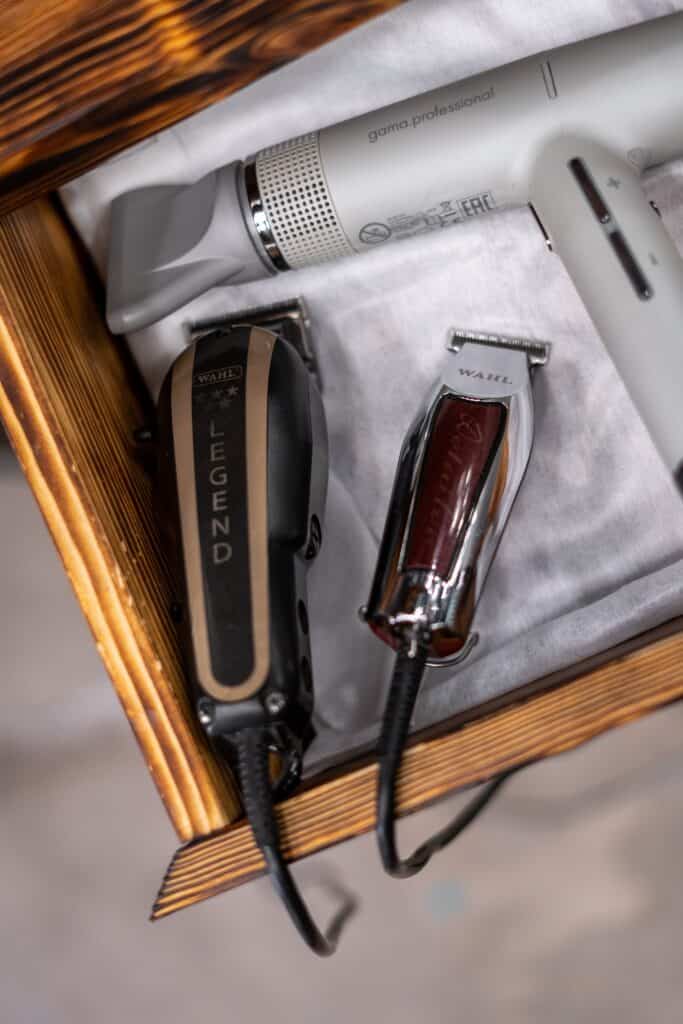
How are the Exams for Barbering and Cosmetology Different?
The exams for barbering and cosmetology are different in terms of focus and content. The exams are designed to evaluate candidates’ theoretical knowledge and practical skills in their respective fields.
How are the Exams for Barbering and Cosmetology Different?
Barbering Exams
Barbering exams typically focus more on men’s grooming techniques and tools.
The written portion of the exam may include questions related to male hair cutting, shaving, beard grooming, and scalp treatments.
The practical exam for barbering often requires candidates to demonstrate their skills on live models or mannequins, showcasing their ability to perform various barbering services such as clipper cuts, scissor cuts, facial hair grooming, and shaving.
Cosmetology Exams
Cosmetology exams cover a broader range of beauty services, including hair, skin, and nail care for both men and women.
The written portion of the exam may include questions related to hair cutting, styling, coloring, chemical services, skincare, makeup application, and nail care.
The practical exam for cosmetology often requires candidates to demonstrate their skills in different areas, such as hair cutting, styling, coloring, skincare, makeup application, and nail care.
Depending on which state you are testing in, sometimes the examination board may require the tester to work on live models or mannequins to showcase their proficiency in various beauty services.
Are Barbering and Cosmetology Degrees or Trades?

Barbering and cosmetology can be considered as both trades and degrees, depending on the educational path chosen by individuals.
Barbering as a Trade
Barbering is often considered a trade, as it typically involves completing a vocational program focused primarily on practical skills. Barbering programs usually do not offer a formal degree, but rather a certificate or diploma upon completion.
These programs are usually shorter in duration compared to degree programs and place more emphasis on hands-on training and skill development.
Cosmetology as a Degree
Cosmetology, on the other hand, can be considered as both a trade and a degree. Many cosmetology programs offer a formal degree, such as an Associate’s degree, depending on the state, upon completion of the program.
These programs combine theoretical knowledge with hands-on training and usually require more hours of education compared to barbering programs. The degree aspect of cosmetology programs provides individuals with a more comprehensive understanding of the beauty industry and can beneficially impact their career prospects.
Though it’s important to emphasize that most cosmetology programs only offer a certificate, much like barbering, many states in the USA don’t offer a degree along with the trade training.
Conclusion for Barbering vs Cosmetology
In summary, barbering and cosmetology programs differ in their focus and curriculum.
Barbering programs primarily emphasize male grooming techniques, while cosmetology programs cover a broader range of beauty services for both men and women.
The requirements and exams for obtaining a barbering or cosmetology license also differ, with barbering programs focusing more on male-specific techniques and tools.
Finally, barbering programs are often viewed as trades, while cosmetology programs can offer both the hands-on skills of a trade and the academic benefits of a degree. Deciding between barbering and cosmetology ultimately depends on an individual’s interests, career goals, and preferred educational path.
27 Cosmetology Career Paths – Hidden Careers Under One License
Other Hidden Careers Under these Licenses
Estheticians
Estheticians are skin care professionals.
Usually, Estheticians are hired at spas and other skin care facilities.
Estheticians legally are allowed to perform facials, body wraps, scrubs, chemical skincare treatments, Microderm abrasions, full body waxing, and makeup.
Generally, professionals who pursue this license later decide if they will specialize in spa treatments or makeup. Or all of the above, because why not? If you’re licensed for all of it, why not go for it all?
Nail Techs
Nail technicians are legally allowed to perform a variety of manicures, and pedicures.
Including but not limited to acrylic, shellac, gels, and other specialty nail treatments. Nail Technicians are not allowed to treat any nail diseases or conditions.
A few more specialty opportunities to choose from…
- Lash Technician
- Color Specialist
- Waxing Specialist
- Blowout Specialist
- Eyebrow Artist
- Makeup Artist
- Extensions Specialist
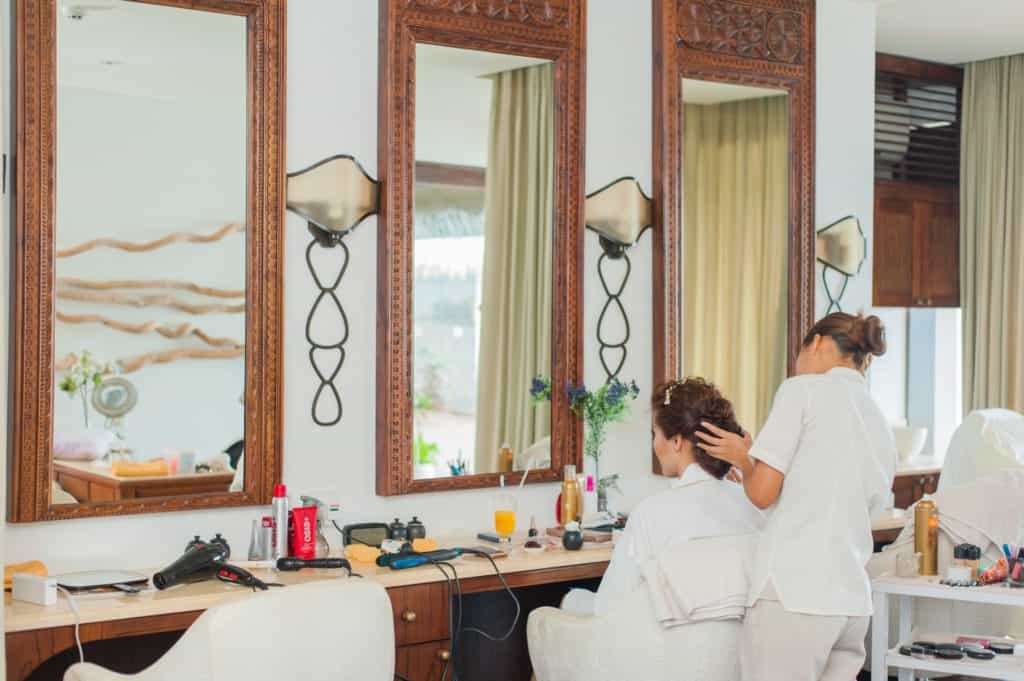
Articles Related to Barbering vs Cosmetology
12 Things I wish I knew Before Beauty School
Is Cosmetology School for Me Quiz – By a Pro for a Future Pro
Should I go to Cosmetology School? How to Choose the Right Beauty School
20 Questions to Ask a Cosmetology School – How to Interview a School
8 Tips How to Succeed in Beauty School
How to Prepare for Cosmetology School
27 Cosmetology Career Paths – Hidden Careers Under One License
Is Cosmetology School for Me? 5 Questions to ask yourself BEFORE applying for school

